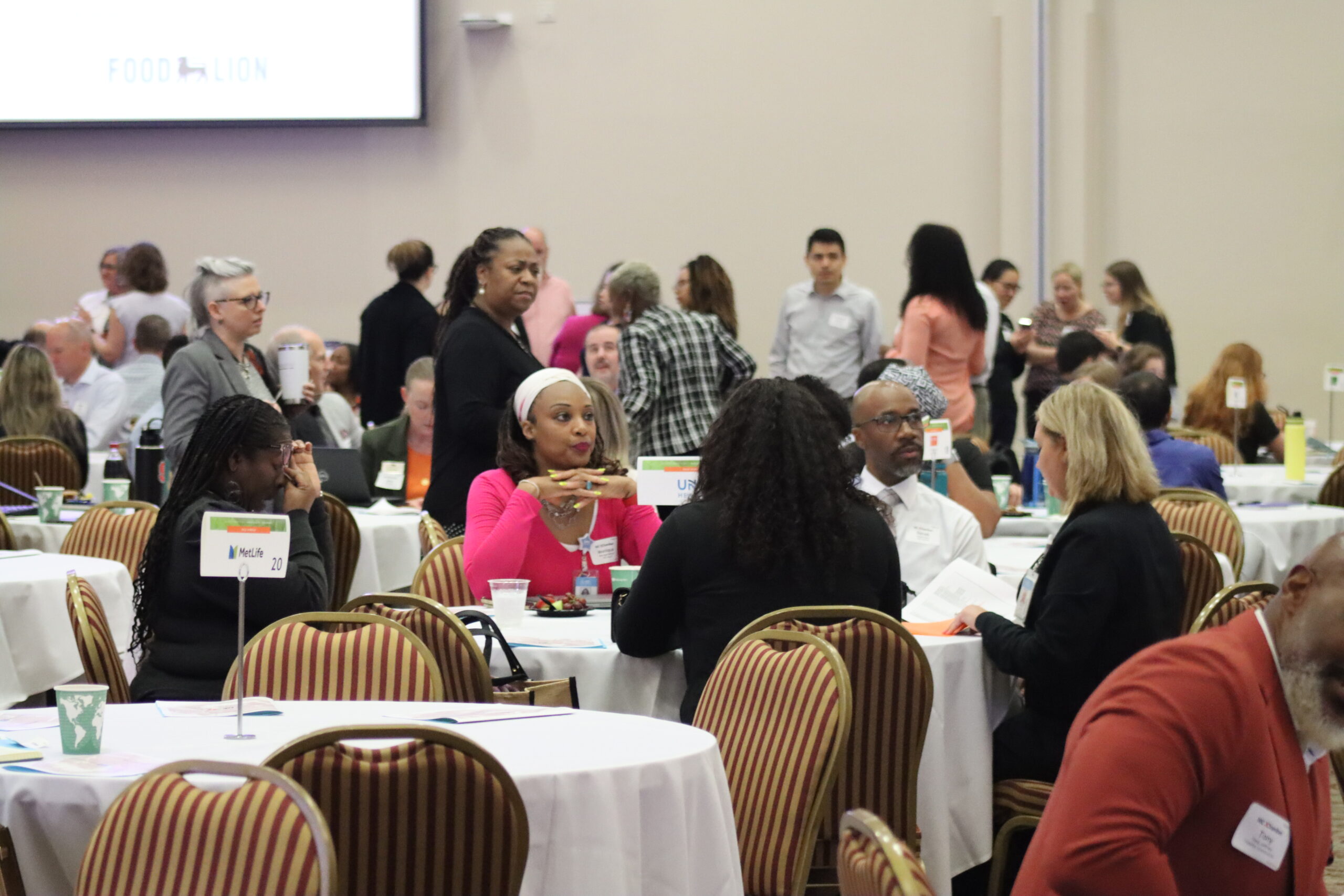Workplace DEI Conference Recap: Achieving Sustainable Inclusion Through Belonging

This year marked the seventh year that the NC Chamber held its annual Workplace DEI Conference in Raleigh, which was founded with the goal to help foster and inform DEI conversation in the workplace.
Companies know that DEI is most effective when it’s embedded within the culture of an organization—a commitment that starts from the top and works its way down. When DEI initiatives start from the top down, they become a fundamental part of business. For employees of all backgrounds, abilities, races, and gender groups, it’s imperative that they feel seen, heard, and valued.
The NC Chamber thanks BASF who served as our conference presenting sponsor this year.
Last Thursday’s event covered a variety of topics including corporate social responsibility, addressing the needs of a diverse workforce, and thinking about DEI strategies in the long-term. The conference concluded with an impactful keynote session, titled “Achieving Sustainable Inclusion through Belonging,” which was led by Eric Ellis, president and CEO of Integrity Development Corporation.
Creating a Sense of Belonging: The ROI is Clear
More than two-thirds of employees consider workplace diversity an important factor when considering employment with a new company, according to Ellis. Job seekers also trust employees when it comes to understanding what diversity and inclusion really look like at a company.
Additionally, organizations with inclusive cultures are:
- Two times as likely to meet or exceed financial targets;
- Three times more likely to be high performing;
- Six times more likely to be innovative and agile; and
- Eight times more likely to achieve better business.
Ellis also explained how every individual’s personal, social, and organizational factors play into their perceptions of a “diverse, equitable, inclusive, and belonging” environment. The “DEIB Wheel” he showed the audience divided up various traits into categories. The speaker showed the audience how some traits have more power than others—essentially designating some as dominant versus non-dominant culture traits. Ellis explained that dominant culture traits have more power and privilege than non-dominant culture traits.
Noting that empathy was the most important leadership skill according to research, he discussed that leaders who demonstrate empathy, have a direct and statistically significant effect on their organization’s retention, innovation, engagement, inclusivity, and work-life balance.
While Ellis acknowledged that unconscious bias has now long been a trending DEI issue, he instead talked about reducing long-term bias, a model that includes increasing awareness, demonstrating empathy and concern, and enlisting strategies and techniques to reduce bias in the workplace.
Skills to Create a Sense of Belonging
In his presentation, Ellis talked about the skills needed to create belonging in the workplace, which includes diversity critical thinking, perspective taking, belonging, empathic leadership, and psychological safety.
Most of these are of course intuitive, so therefore, he took special note to expand upon a couple of those items. First, diversity critical thinking is defined as the ability to look at an issue that challenges your beliefs from multiple points of view. This can include accepting opposing perspectives, acknowledging hot button issues, embracing uneasiness, and seeking truth beyond understanding.
Perspective taking on the other hand is the act of perceiving how a situation appears to another person and their cognitive and emotional reactions. As an audience exercise, he had attendees practice this with one-minute thinking exercises that mimic real-life practice.
Conclusion
This well-known DEI expert explained that everyone’s DEIB journeys are in various stages in their respective organizations but it’s important to sense check where you are in the process by making a few commitments that include:
- Deciding whether or not you believe there is value investing in effective DEIB;
- Conducing an assessment of your organization’s DEIB strengths and opportunities;
- Identifying your own personal biases and apply reduction techniques; and
- Establishing an individual and organizational DEIB plan and tracking your results.
He concluded by reminding the audience that a crucial part of bettering ourselves and our organizations is interrupting our comfortable patterns of thinking. To be successful he said that you must have an understanding of root causes, have a meaningful definition of success, have accountable business leaders, and a good tracking and course correction.
If you had to miss the conference, you’ll have another chance to join us at the Charlotte edition of the conference on September 26. Sign up to receive event updates.
Photos from the conference can be found here.